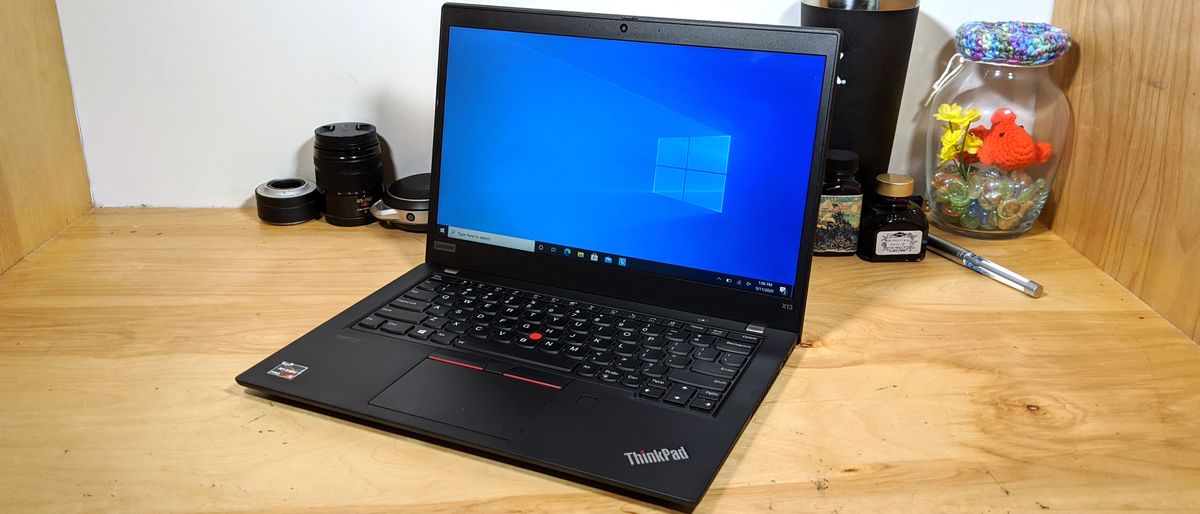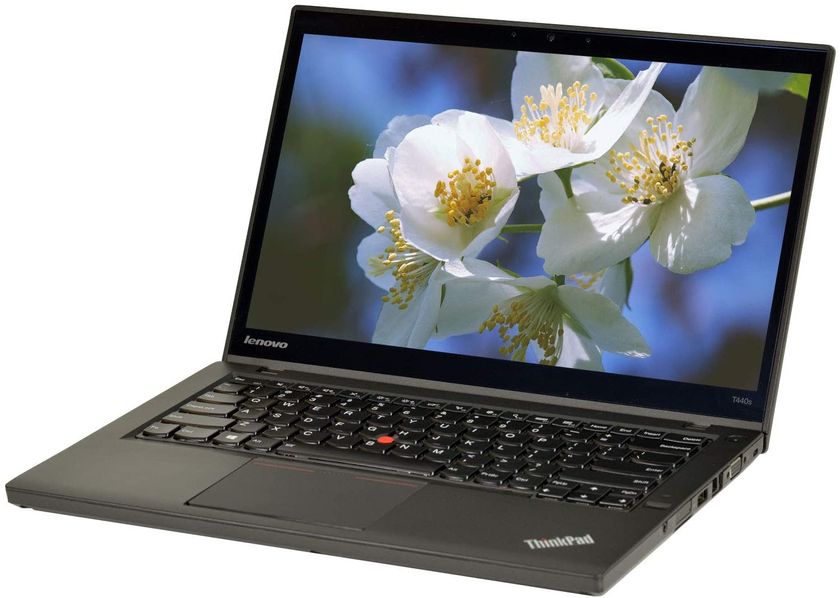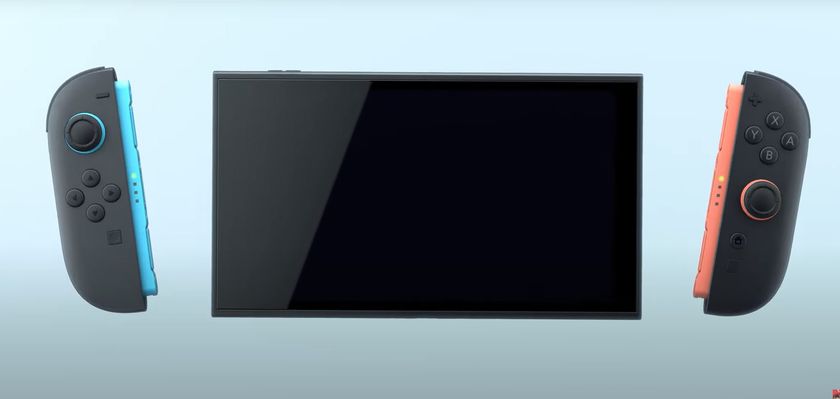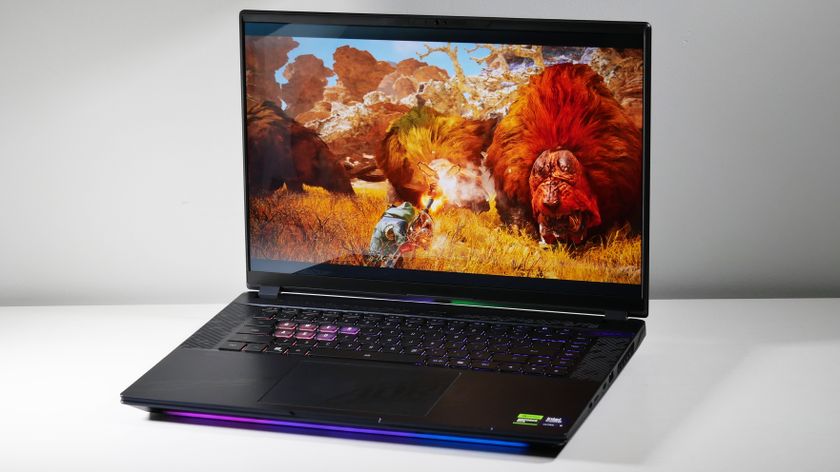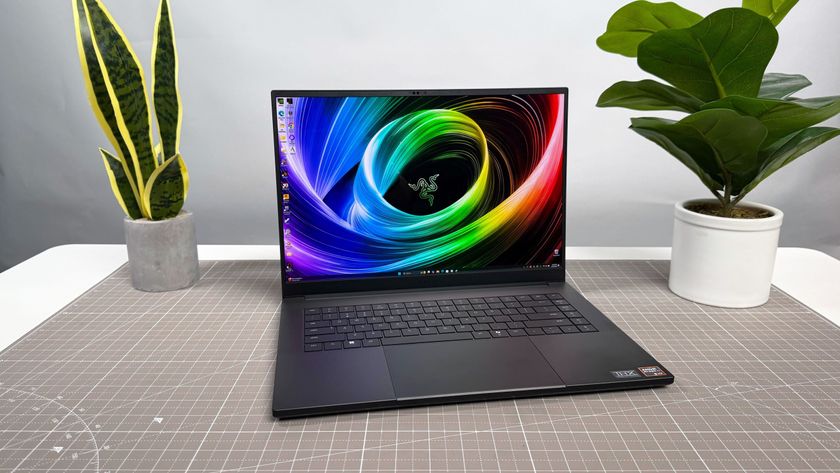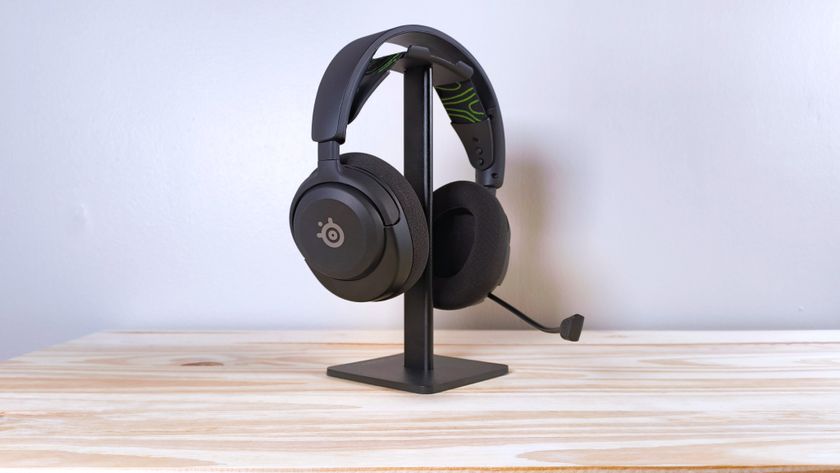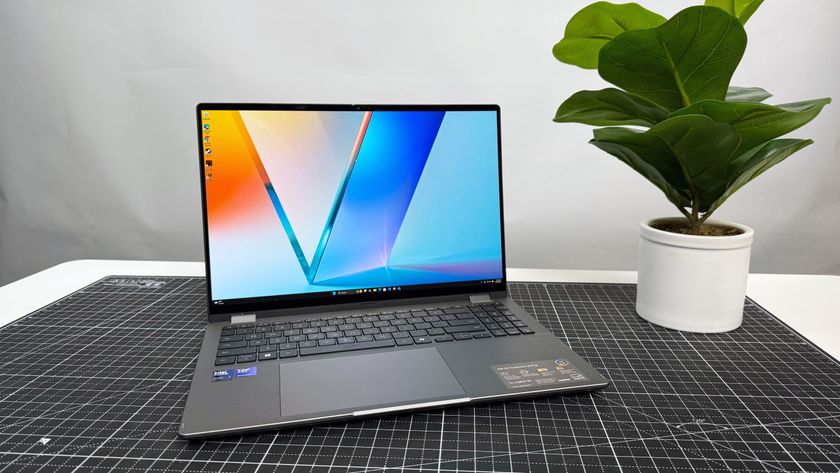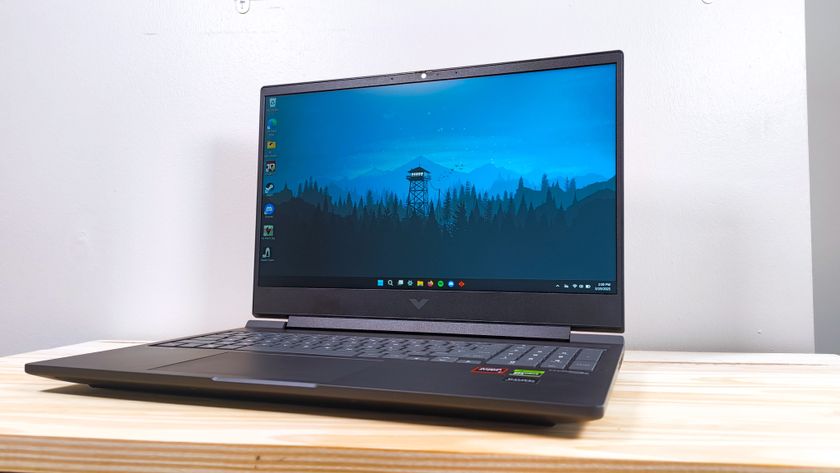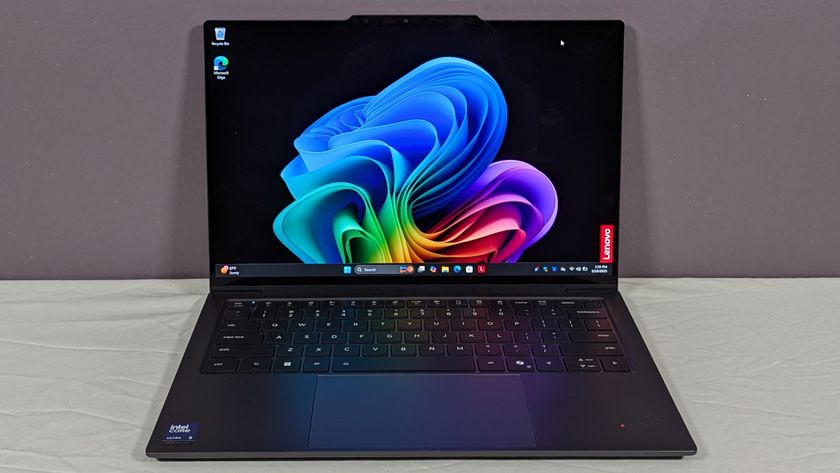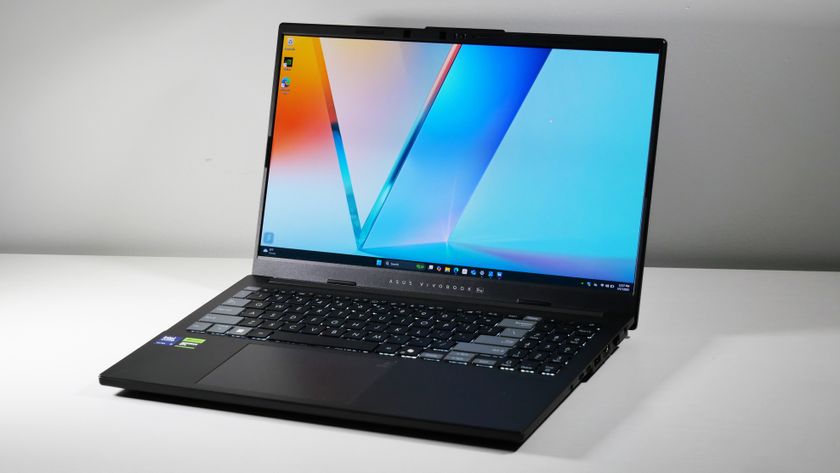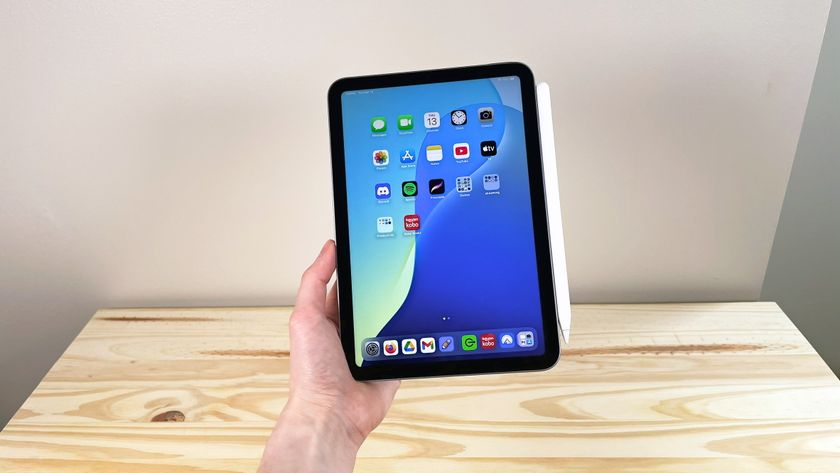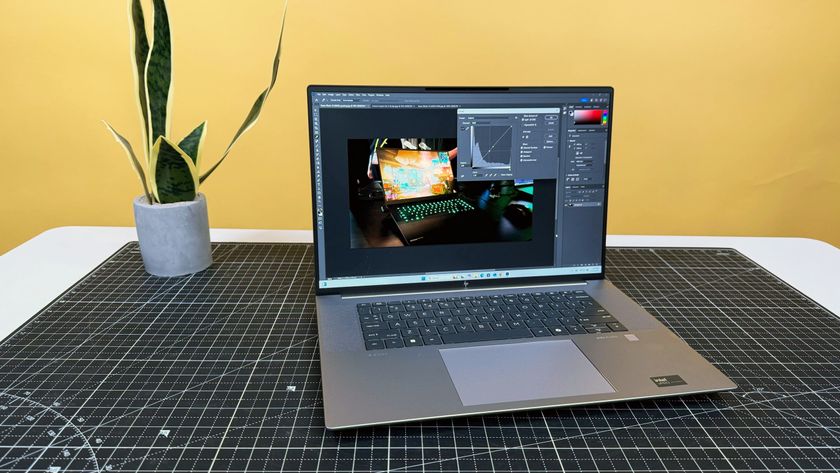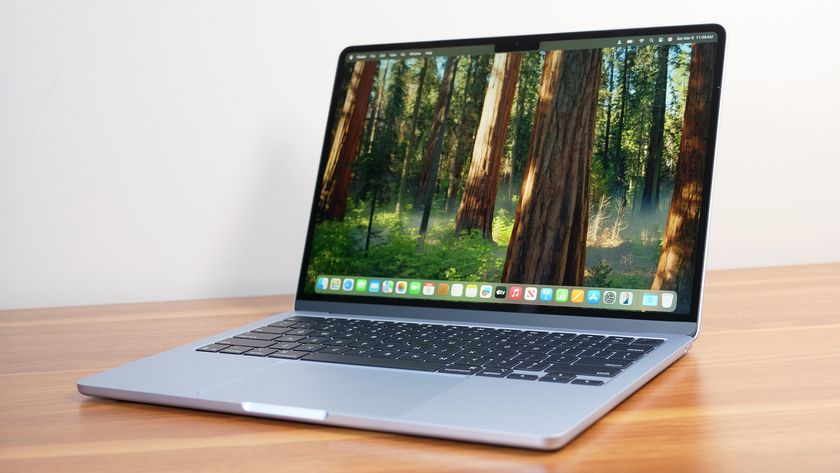Laptop Mag Verdict
Lenovo's ThinkPad X13 delivers fast performance and plenty of security features in an affordable 13-inch package, but its battery life falls short
Pros
- +
Outstanding performance
- +
Durable chassis
- +
Best-in-class keyboard
- +
Plenty of ports
- +
Competitively priced
Cons
- -
Subpar battery life
- -
Thick display bezels
- -
RAM limited to 16GB
- -
No Thunderbolt 3
Why you can trust Laptop Mag
Price: $974 (starting at $683)
CPU: AMD Ryzen 5 Pro 4650U
GPU: AMD Radeon
RAM: 8GB
Storage: 256GB SSD
Display: 13.3-inch, 1080p
Battery: 7:53
Size: 12.3 x 8.6 x 0.7 inches
Weight: 2.8 pounds
Let me set your expectations. Lenovo's ThinkPad X13 ($683 starting, reviewed at $974) is not a 13-inch version of the ThinkPad X1 Carbon. We're still waiting on that notebook, which could arrive in the recently leaked ThinkPad X1 Nano. So, what is the ThinkPad X13? Ignore the branding, the laptop feels more like a T-series ThinkPad. And that's not a bad thing.
Where the ThinkPad X1 Carbon blends style with substance, the ThinkPad X13 leans more heavily on the latter. It trades thin bezels and portability for a utilitarian design with a generous feature set. The keyboard is as fantastic as ever, there are plenty of ports, and the chassis is tested to military-grade durability. But all that is expected of a ThinkPad.
What stands out about the ThinkPad X13 comes courtesy of AMD, not Lenovo. A powerful Ryzen Pro 4000 CPU gives the ThinkPad X13 a performance advantage over competing business laptops, including much pricier models. The ThinkPad X13's excellent performance and competitive price do just enough to help me forgive an uninspired design and below-average battery life.
Lenovo ThinkPad X13 (AMD) price and configuration options
With a starting price of $683, the ThinkPad X13 is one of the most affordable business laptops and much cheaper than any other ThinkPad X-series laptop. That base model comes with one serious drawback: a 13.3-inch, 1366 x 768-pixel display. The other specs, an AMD Ryzen 3 Pro 4450U CPU, 8GB of RAM and a 128GB SSD, are fine for most uses but you'll want to upgrade the screen. 786p should be extinct in 2020.
Lenovo was generous enough to make that upgrade on our $974 review unit, which has a 13-inch, 1080p touchscreen, a Ryzen 5 Pro 4650U CPU, 8GB of RAM and a 256GB SSD. For $1,535, you can load the X13 up with a Ryzen 7 Pro 4750U CPU, 16GB of RAM, a 1TB SSD and a 13.3-inch, 1080 display with 500 nits of brightness.
Lenovo ThinkPad X13 (AMD) design
This feels like a wasted opportunity. Instead of taking advantage of a first-gen laptop to modernize the signature ThinkPad design, Lenovo took the easy way out by reusing the ThinkPad X390 mold. The X13 looks almost identical to its spiritual predecessor except that the lid is reinforced with carbon fiber while the deck is magnesium alloy.
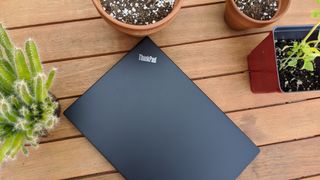
It feels sturdy and has all of the traditional ThinkPad accouterment, including a rubber pointing stick, discrete touchpad clickers with red accents and an illuminated "i" on the ThinkPad lid branding. Add the fingerprint sensor, a 180-degree folding hinge and webcam cover, and it makes for a rather practical design.
What bothers me about the ThinkPad X13 is how it looks. The bezels above and below the display are massive by today's standards, resulting in a laptop with a larger footprint than its competitors. Beyond its size, the chinky bezels make the ThinkPad X13 appear outdated and a detective could ID me using the fingerprints I've left on the lid.
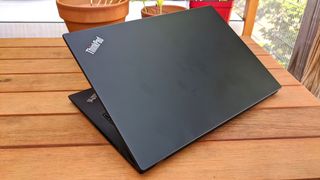
If there's one benefit of the extra space, it's that the X13's power button is on the deck instead of on the side, a small concession all things considered. I can't criticize Lenovo too much for failing to move the X13's design forward; while this is a ThinkPad X-branded laptop, it's more affordable than the ThinkPad X1 Carbon or X1 Yoga. Perhaps the company is holding back for the rumored ThinkPad X1 Nano.
Now, about its size. At 12.3 x 8.6 x 0.7 inches and 2.8 pounds, the ThinkPad X13 is thicker and heavier than the 14-inch Asus ExpertBook B9450 (0.6 inches, 2.2 pounds) and less portable than the Apple MacBook Air (0.6 inches, 2.8 pounds). The 14-inch Dell Latitude 9410 (0.8 inches, 2.9 pounds) is chunkier than its rivals.
Lenovo ThinkPad X13 (AMD) durability and security
No matter the materials Lenovo uses, if it's a ThinkPad, it has military-grade durability. In this case, the ThinkPad X13 has passed 12 MIL-STD-810G tests for various extreme conditions, including high altitudes, freezing temperatures and dust storms.
If you're cooped up inside doing remote work insteading of braving the outdoors, then you'll appreciate the spill-resistant keyboard for those inevitable early-morning coffee spills.

Protecting the files stored inside of the X13 is a fingerprint sensor and optional IR camera for secure and quick login. Our unit didn't come with an IR camera but the fingerprint sensor was reliable. I stopped using a password once I had set it up in the Windows Hello settings.
Now a standard feature on business notebooks, the ThinkPad X13 also has a webcam cover (or ThinkShutter) so you can ditch the strip of tape. You can also opt for a ThinkPad PrivacyGuard, a display option with a built-in privacy filter that intentionally limits viewing angles. Your sensitive files are protected by dTPM 2.0, a chip that ensures all data transfers are encrypted.
Lenovo ThinkPad X13 (AMD) ports
There is a generous assortment of ports lining the ThinkPad X13 so you won't need a dongle to connect peripherals or upload photos.
On the right side are a USB 3.2 Type-A input and a Kensington lock slot.
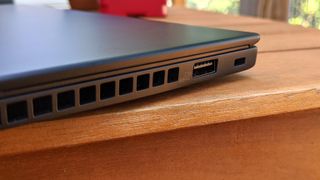
Turn to the left side and you'll see two USB-C inputs, an Ethernet extension port, a second USB 3.2 Type-A connector, an HDMI and a headphone/mic jack. As a reminder, Thunderbolt 3 is an Intel technology so you don't find it on this AMD-powered laptop.
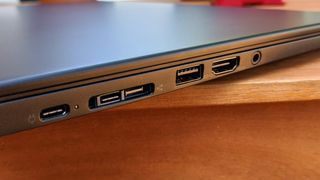
On the spine of the laptop is a microSD card slot, which you'll no longer find on the ThinkPad X1 Yoga and X1 Carbon. I'm happy to see it return although you need those easy-to-lose PIN ejector tools that come with your smartphone to access the microSD.
Lenovo ThinkPad X13 (AMD) display
The 13.3-inch, 1080p display on our review unit hits all of our recommended scores, making it great for productivity work and multimedia consumption alike. It's a good display, but what really helps it stand out is the anti-reflective finish, which can often be a detriment to picture quality.
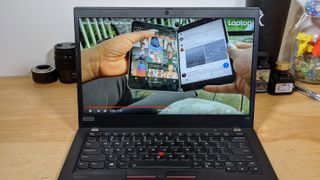
The panel passed the eye test. The lavish interior of a dance hall was enriched by magnificent gold molding, the smallest details of which were visible on this FHD panel. Red velvet dresses were a vibrant scarlet, but I suspect they would have popped more on a glossy panel. Regardless, I enjoyed using the X13's accurate, colorful display.
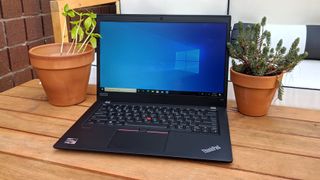
Our colorimeter showed the X13's display is capable of covering 72% of the DCI-P3 color gamut. It's a good result, but it means the panel is less colorful than those on the MacBook Air (80%), ExpertBook B9450 (83%) and the Latitude 7310 (77%). The category average tops all of these laptops at 83%.
I'm more concerned by the maximum brightness, which peaks at just 278 nits. The Latitude 7310 (277 nits) is equally dim while the ExpertBook B9450 (302 nits), MacBook Air (386 nits) and the category average (382 nits) shone above our 300-nit preference.
Lenovo ThinkPad X13 (AMD) keyboard, touchpad and TrackPoint
I have nothing to add that I haven't already said in previous ThinkPad reviews. Put simply, the ThinkPad X13's keyboard is fantastic. Every key pouch was countered with a tactile bump that sprung my fingers from one letter to the next. Those concave keys we've praised for years have what feels like an impossible amount of travel for a laptop this thin.
My only complaint with the keyboard is the layout. To accommodate the smaller chassis, Lenovo shrunk the arrow keys and the neighboring Alt, PrtSc and Ctrl keys. I'm on Team Left Ctrl, but I know a few Laptop Mag staffers who would take offense to these shrunken right-sided keys.
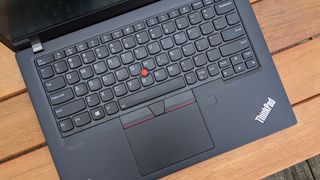
I typed at 116 words per minute with a 98% accuracy, falling a few words short of my 119-wpm average, but with fewer errors than my usual 5% typo rate.
The 4 x 2.5-inch touchpad gets the job done but those with larger hands might have trouble executing Windows 10 gestures. My sausage fingers scraped the edges of the rectangular surface as I used pinch-to-zoom and three-finger swipes to swap Windows.
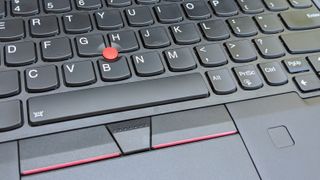
If you cherish home row, the red rubber nub (aka pointing stick) can be used as a touchpad without forcing you to move your hands off the keyboard. I'm not a member of its cult-like following, but the nub responded as I expected — the cursor moved in whichever direction I applied pressure.
Lenovo ThinkPad X13 (AMD) audio
The dual speakers on the ThinkPad X13 sound fine, but their downward trajectory can be problematic. Glass Animals' "Tangerine" was crisp and full of energy when the laptop was placed on my wooden desk.
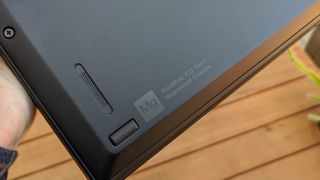
Those sweet tunes were smothered when I placed the laptop on my thick cotton workout sweats or, to a lesser degree, my leather couch. The vocals sounded hollow and the blend of electric guitar and synth became muddled when the volume was above 70%.
Lenovo ThinkPad X13 (AMD) performance
AMD set the bar for mobile with its Ryzen 4000 CPUs and the Ryzen 5 Pro 4650U paired with 8GB of RAM in the ThinkPad X13 is further proof. The "Pro," by the way, means this chip is designed specifically for business laptops. Think vPro but from AMD, meaning IT admins get manageability features not found in the standard CPUs.
If you're assigned a ThinkPad X13 by your employer, all you need to know is that this notebook flies. I loaded various websites on 25 tabs in the new Microsoft Edge browser without noticing a hint of lag. In fact, I couldn't even punch in a URL on a new tab before the previous one had finished loading. I didn't notice any slowdowns even with four 1080p YouTube videos and two Twitch streams playing in the background.

The ThinkPad X13 flexed its muscles on the Geekbench 5 overall performance test notching an outstanding score of 4,935. That crushes the ExpertBook B9450 (2,830), the Dell Latitude 7310 (3,464) and the premium laptop average (4,060). Close your eyes Apple fans, the MacBook Air (2,738) was embarrassed on this test.
If Geekbench was a homerun, the ThinkPad X13 hit a grand slam on our Handbrake test, needing only 10 minutes and 45 seconds to convert a 4K video to 1080p. The competition didn't get anywhere close; the Latitude 7310 came in second place with a time of 19:39 while the MacBook Pro (27:10) and ExpertBook B9450 (28:24) really struggled.
The 256GB PCIe NVMe SSD in our review unit didn't disappoint, either. It duplicated a 5GB multimedia file in 7 seconds for a rate of 745.1 megabytes per second. That puts it in the same ballpark as the ExpertBook B9450 (771.1 MBps) and the Latitude 9310 (877 MBps) while the MacBook Air (1,301.9 Mbps) remains ahead of the pack.
Lenovo ThinkPad X13 (AMD) graphics
Oh, how the tides have turned. Where AMD chips now have a performance edge on Intel, the Iris Xe graphics in Intel's 11th Gen chips seem destined to break new barriers in graphics. Until then, integrated graphics are only good for casual gaming and light editing work.
The Radeon graphics in the ThinkPad X13 played Sid Meier's Civilization VI: Gathering Storm at 29 frames per second, a frame off our 30-fps threshold. That's playable, but not ideal.
Lenovo ThinkPad X13 (AMD) battery life
Well, this is a bummer. With a runtime of 7 hours and 53 minutes on our battery test (continuous web surfing over Wi-Fi at 150 nits), the ThinkPad X13 fell short of the 10-hour premium laptop battery life average.
- Laptops with best battery life in 2020 - longest lasting laptop batteries
It's also well short of the runtimes put up by competing laptops, including the Dell Latitude 7310 (12:18), Asus ExpertBook B9450 (16:42) and the MacBook Air (9:31)
Lenovo ThinkPad X13 (AMD) webcam
I wouldn't feel embarrassed using this 720p webcam during our morning staff meetings. My rosy complexion was a tad pale and there was a layer of visual noise in a selfie I snapped. However, the details in my face were sharper than what I've come to expect from integrated webcams.
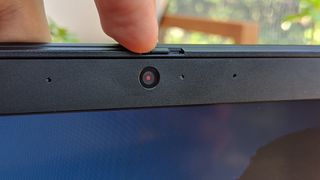
I could see individual strands of hair in my beard and each ring of color in my eyes, details other laptops fail to capture. My Logitech HD Pro C920 still delivers much better image quality, but ThinkPad X13 owners don't need to run out and buy one of the best external webcams.
Lenovo ThinkPad X13 (AMD) heat
The ThinkPad X13 runs a mild temperature under a heavy workload. The bottom of the laptop reached 99 degrees Fahrenheit after we played a 15-minute, 1080p video. That might feel warm against your bare thighs but is otherwise a non-issue. More importantly, the trackpad and center of the keyboard maintained a comfortable 84 degrees and 94 degrees, respectively.
Lenovo ThinkPad X13 (AMD) software and warranty
Lenovo is good about keeping its first-party programs tidily packaged within one app. That app is called Vantage and it's where you can find the latest BIOS, check for system updates or contact support. Navigating the program's clean, colorful interfaces led me to system info and answers to common questions, like how to reset Windows 10 or monitor battery usage.
AMD throws in a diagnostics app aptly named Bug Report Tool to go with a handful of stock Windows 10 Pro apps, including the Xbox Console Companion, Your Phone, and for the eight or so people who use it, Groove Music.
The ThinkPad X13 ships with a one-year warranty. See how Lenovo fared in our Best and Worst Brands and Tech Support Showdown special reports.
Bottom line
To be blunt, my initial impressions of the ThinkPad X13 were unfavorable. The bezels are chunky and the laptop is less portable than most 13-inch models competitors. And when I saw the ThinkPad X13 had lasted less than 8 hours on our battery test, I figured it was DOA.
But the more I used the laptop, the more I appreciated it. Like most AMD Ryzen 4000-powered notebooks, the ThinkPad X13 delivers outstanding performance at a reasonable price when you compare it to business laptops running on Intel 10th Gen vPro chips. Office users will have no issues loading multiple spreadsheets or creating media-heavy PowerPoint presentations.
On top of its fast performance, the X13 offers all the usual ThinkPad goodies — a comfortable keyboard, military-grade durability, and plenty of ports — along with a handful of useful business features, including a webcam cover, fingerprint sensor and optional IR camera. That's a lot of laptop for around $1,000.
The ThinkPad X13 strips away all of the X1 Carbon's seductive qualities and leaves the practical bits. If the subpar battery life is a deal-breaker, we recommend splurging on the Asus ExpertBook B9450 or Lenovo ThinkPad X1 Carbon (8th Gen). Otherwise, the X13 is a great option for small businesses that need fast performance in a portable package without breaking the budget.
Phillip Tracy is the assistant managing editor at Laptop Mag where he reviews laptops, phones and other gadgets while covering the latest industry news. After graduating with a journalism degree from the University of Texas at Austin, Phillip became a tech reporter at the Daily Dot. There, he wrote reviews for a range of gadgets and covered everything from social media trends to cybersecurity. Prior to that, he wrote for RCR Wireless News covering 5G and IoT. When he's not tinkering with devices, you can find Phillip playing video games, reading, traveling or watching soccer.
